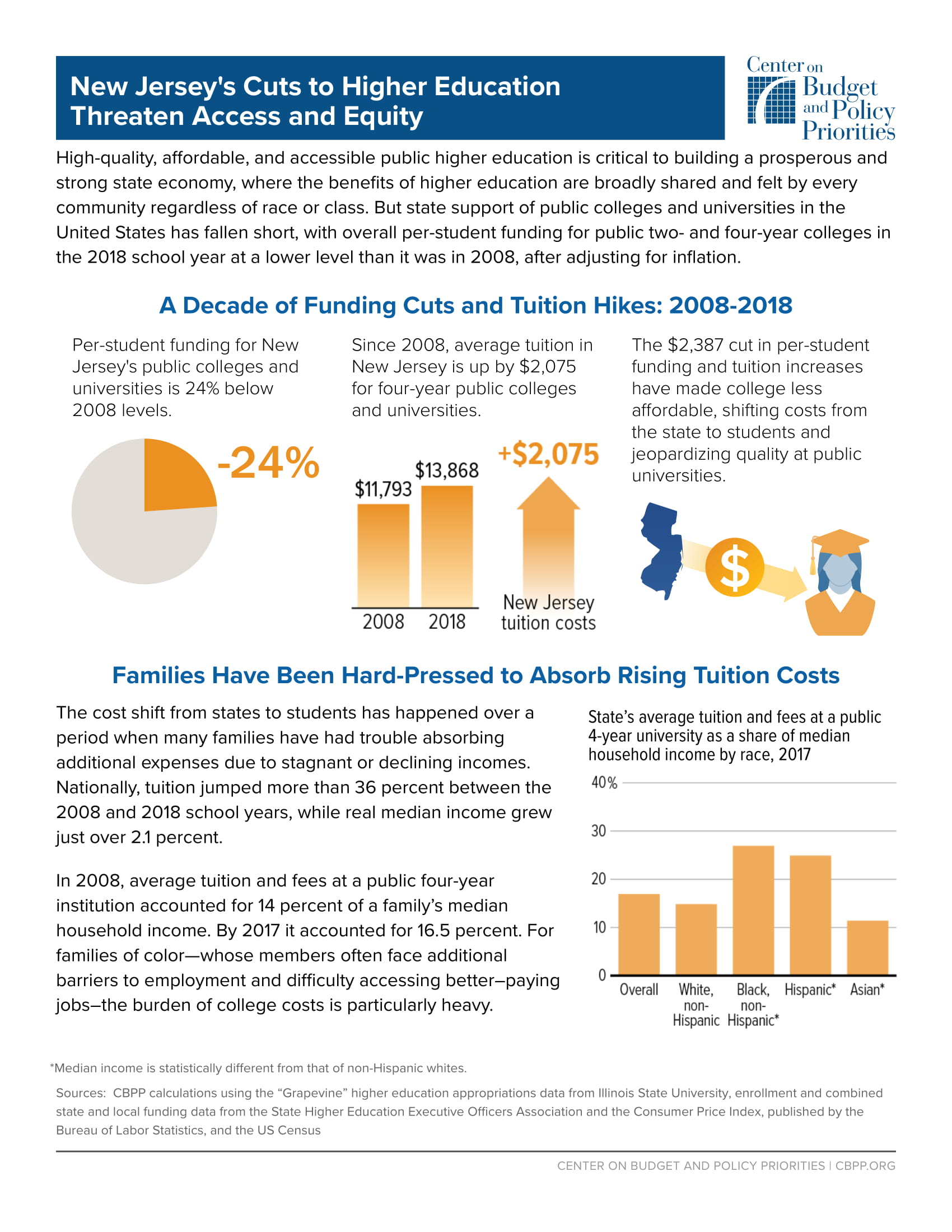Over the past decade, New Jersey’s investment in its institutions of higher education has dropped while tuition has gone up, putting increasing pressure on students and families to pay the high costs necessary to get a college degree.
According to a new report released today by the Center on Budget and Policy Priorities, between 2008 and 2018 New Jersey’s funding for public four-year colleges and universities dropped 24 percent, representing a $2,387 cut per-student. Over that same period, average tuition costs at public four-year colleges and universities increased 18 percent, or $2,075, from $11,973 in 2008 to $13,868 in 2018.
In 2017, average tuition and fees at a public four-year institution accounted for 17 percent of a New Jersey family’s median income. For families of color – who often face additional barriers to employment and increased difficulty accessing jobs that pay better – college costs can be a particularly heavy burden. In 2017, the average tuition and fees at New Jersey’s public four-year institutions accounted for 15 percent of median household income for White families, 27 percent for Black families, 25 percent for Hispanic families, and 11 percent for Asian families.
As the state has pulled back on funding, families have been forced to pay more to secure a college education for their children. The shift in cost has happened over a period when many families have struggled financially due to stagnant or declining income. Nationally, the average cost of tuition increased more than 36 percent between 2008 and 2018. At the same time, real median income grew just over 2.1 percent.


